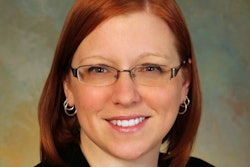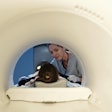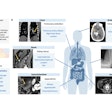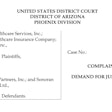
Physicians across a variety of specialties are sexually harassed by patients, although radiologists appear to experience it the least of any medical specialty, according to a report published by Medscape.
Almost a third of physicians have been subjected to sexual harassment by patients, including overtly sexual behavior, being asked out on a date, attempts at touching or groping, requests for a sexual encounter, or sexual emails, letters, or photos, Medscape found.
The online survey was conducted between March and April 2018 and included 6,235 respondents across more than 29 specialties. Respondents included physicians, residents, nurses, nurse practitioners, and physician assistants.
In the workplace, 7% of physicians are sexually harassed by other clinicians, medical personnel, or administrators, according to Medscape. But 27% of physicians across a variety of specialties are sexually harassed by patients. Of these encounters, the majority (17%) consisted of patients acting in an overtly sexual manner toward the doctor.
Female physicians encounter more harassment, with 19% experiencing patients acting in an overtly sexual manner toward them, compared with 17% of male physicians. By demographic, younger residents of both sexes encounter the most harassment, at 79%.
Rates of sexual harassment for selected medical specialties are shown in the table below, with radiologists last on the list. The full list of specialties is available in the report.
| Sexual harassment rates for selected medical specialties | |
| Medical specialty | Harassment rate by patients |
| Dermatology | 46% |
| Emergency medicine | 43% |
| Plastic surgery/aesthetic medicine | 41% |
| Oncology | 35% |
| Physical medicine and rehabilitation | 35% |
| Psychiatry | 35% |
| Anesthesiology | 30% |
| Internal medicine | 28% |
| Neurology | 28% |
| Urology | 26% |
| General surgery | 25% |
| Orthopedic surgery | 22% |
| Cardiology | 20% |
| Ob/gyn and women's heath | 12% |
| Pathology | 11% |
| Radiology | 10% |
"More than a quarter of physicians have experienced at least one incident of sexual harassment from patients within the past three years ... [with the] most common [being] obvious sexual overtures," the report concluded.




















